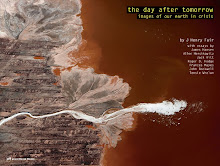I'm visiting Auschwitz with a friend whose father survived the horror to move to the USA and start a new life, after which my friend was born. He has felt a need to connect with this part of his history, and I, as one who is so often disconnected from my personal history, am glad to accompany him.
Of course, as modern Americans, most of us have known no real hardship: our parents lived through the Depression, and though the recent unpleasantness has been just that for many of us, those who are really impacted are out of sight.
Krakow is the closest major city, so we base ourselves there.
It is one of the most beautiful, preserved, and vibrant cities I have seen. The Poles have been abused, traded back and forth, and almost seemingly forgotten. But they have produced some of the greatest intellectuals, artists, and scientists the world has known; one need only mention Chopin.
In touring the camp, I can't help but be bombarded by multiple thoughts: how could people do this to each other? How could one person do that to another person? What is modern Germany's relation to what happened here? And then there are more prosaic thoughts as an artist and journalist: What remains of what was here? Should this place be declared off limits due to the fact that we are literally walking on the ashes of thousands of people? Can we learn the proper lessons from this place?
Entrance of camp: "Work Makes You Free"
The Nazis attempted to destroy much of Auschwitz once it was clear the jig was up for them. And the Poles built up the museum in the 50's, and of course any restoration is not the same as the original. Millions of people have passed through this place since, and they have all left their mark. I found myself looking for original things to photograph: manhole covers, locks, rusted hinges that looked of the period, the chimneys that remained from the destroyed bunkhouses. Some of the interesting things that I wanted to photograph (and did) seem suspiciously as if they might be relics of the tourists, not prisoners: ashes in the heating stoves, graffiti scratched in to the plaster walls.
Prosthetic limbs stolen from Jewish prisonersIt's well known that regular people can perform heinous acts on their fellows, especially when told to do so by a superior. And the greater the “us/them” dichotomy, the easier it is for an individual to justify, witness “gooks.” I have many German friends (admittedly, most are intellectuals); they all carry a burden of guilt from the Nazi days. That said, we have all read about the resurgence of Nazism, especially in the East.
Mostly, I reflect on the meaning to myself and my country. While Germans have undergone deep soul-searching due to this horror, I do not sense the same at home where we have perpetrated our own abominations. Let's begin with the treatment of the first Americans: willful, methodical slaughter, genocide, and theft of their lands. Then of course one thinks of the slavery issue, primarily associated with the South. But these are nightmares far in the past, and not likely to be dredged up for consideration. On the other hand, our contemplation of Vietnam rarely, if ever goes beyond the domestic impacts of “The American War,” yet estimates of the number of dead range from 1.5 to over 3 million. Our application of hebicide defoliants alone fills me with horror. According to Wikipedia, the USA sprayed 12% of the total land area of South Vietnam at concentrations far greater than the “manufacturer's suggested application.” We targeted food crops, causing mass starvation and population migrations, and poisoning the entire ecosystem to this day. The effects persist to the present. I have been there and have seen the birth defects in the present population. Interestingly, I did not encounter any animosity.
Then there are our current wars: It's a safe guess that over a million Iraqi civilians have been killed in our foray, maybe 25,000 in Afghanistan. Civilians. But we will never know. And we don't seem to care.
And we haven't even discussed our torture policies which continue to this day.
Land of the free, home of the brave?
04 October 2011
Subscribe to:
Posts (Atom)







